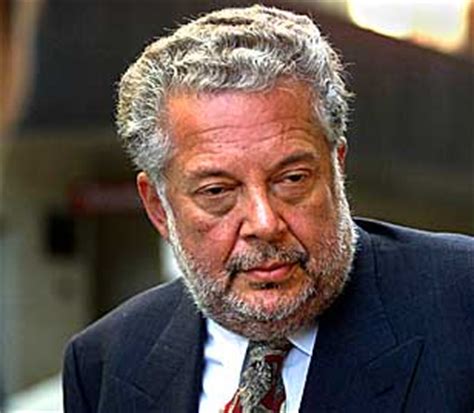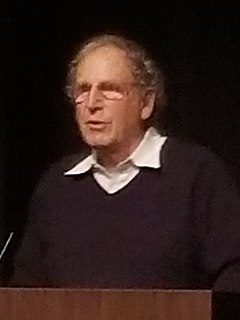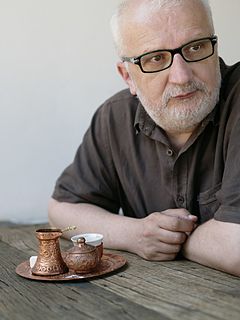A Quote by Douglas Adams
It is worth repeating at this point the theories that Ford had come up with, on his first encounter with human beings, to account for their peculiar habit of continually stating and restating the very very obvious, as in "It's a nice day," or "You're very tall," or "So this is it, we're going to die." His first theory was that if human beings didn't keep exercising their lips, their mouths probably shriveled up. After a few months of observation he had come up with a second theory, which was this--"If human beings don't keep exercising their lips, their brains start working.
Quote Topics
Related Quotes
There are no perfect human beings! Persons can be found who are good, very good indeed, in fact, great. There do in fact exist creators, seers, sages, saints, shakers, and movers...even if they are uncommon and do not come by the dozen. And yet these very same people can at times be boring, irritating, petulant, selfish, angry, or depressed. To avoid disillusionment with human nature, we must first give up our illusions about it.
War to me is very much like sex. You can develop a theory that says sex is primarily for the exchange of genetic material, or that it's a celebration of life, or you can make up 50,000 theories about why human beings have sex, all of which are in some sense true, all of which by themselves miss the point. Because the answer is extraordinarily complex. It may be for fun, it may be for reproduction, for financial reasons, any number of things.
An extra-terrestrial philosopher, who had watched a single youth up to the age of twenty-one and had never come across any other human being, might conclude that it is the nature of human beings to grow continually taller and wiser in an indefinite progress towards perfection; and this generalization would be just as well founded as the generalization which evolutionists base upon the previous history of this planet.
Mahatma Gandhi I would say had perhaps a greater spiritual quality whereas Winston Churchill had besides the courage, ability and above everything else, the ability to put into words what his people felt so that he could always lead them. And my own husband I think had great patience, which you need in a democracy because you have to come to do fundamental things, you have to have the patience to have people educated; and then I think he had a deep interest in human beings as human beings.
In film, there are two ways of including human beings. One is depicting human beings. Another is to create a film form which, in itself, has all the qualities of being human: tenderness, observation, fear, relaxation, the sense of stepping into the world and pulling back, expansion, contraction, changing, softening, tenderness of heart. The first is a form of theater and the latter is a form of poetry.
People come to the theatre in search of a real encounter with other human beings, and we must give them what they come for. Our capacity to do that is the measure of being human. And if the price is that we sometimes say something not very pleasant - well, that's precisely why people want us, in the end: because we speak the truth.




































